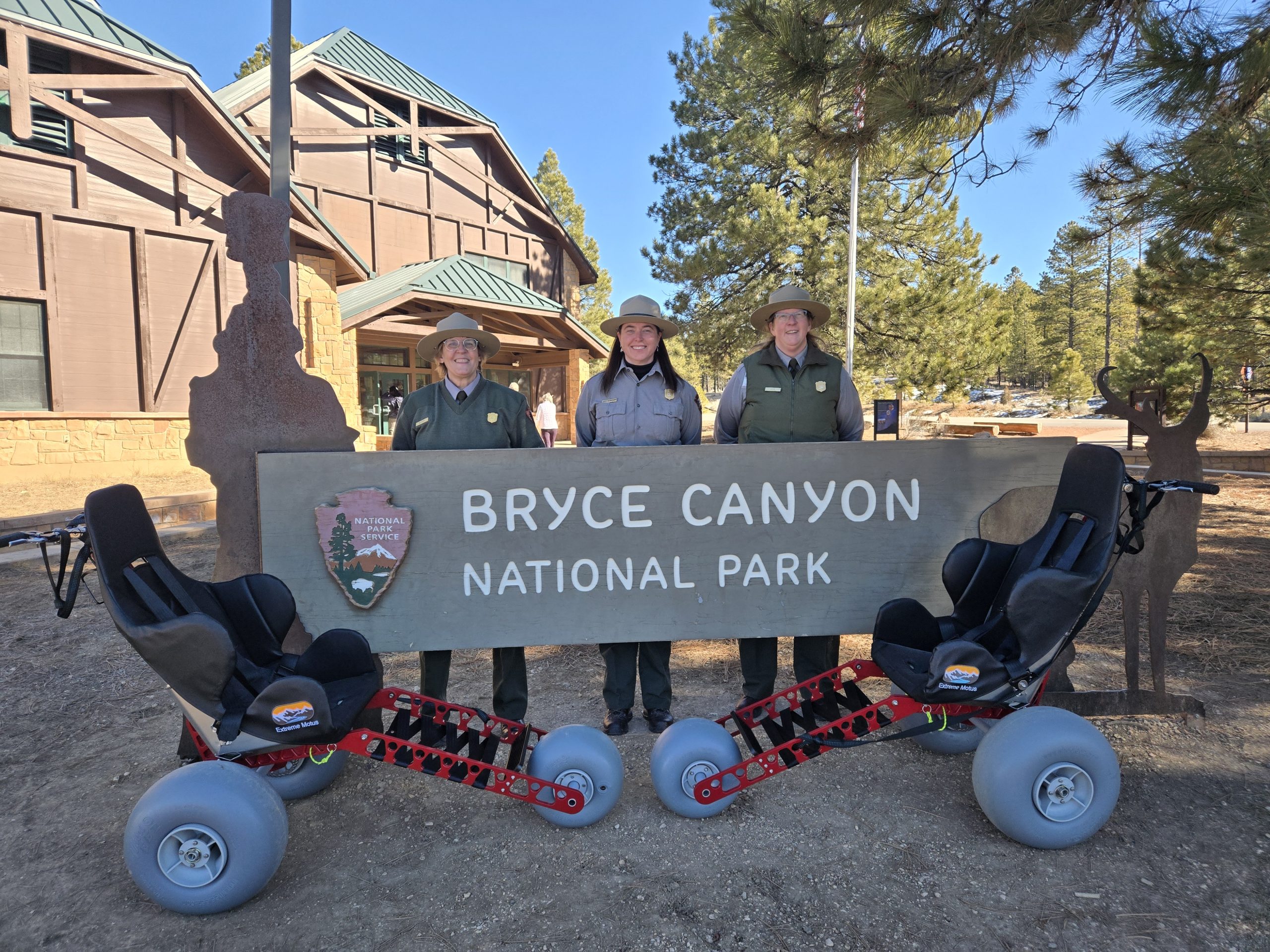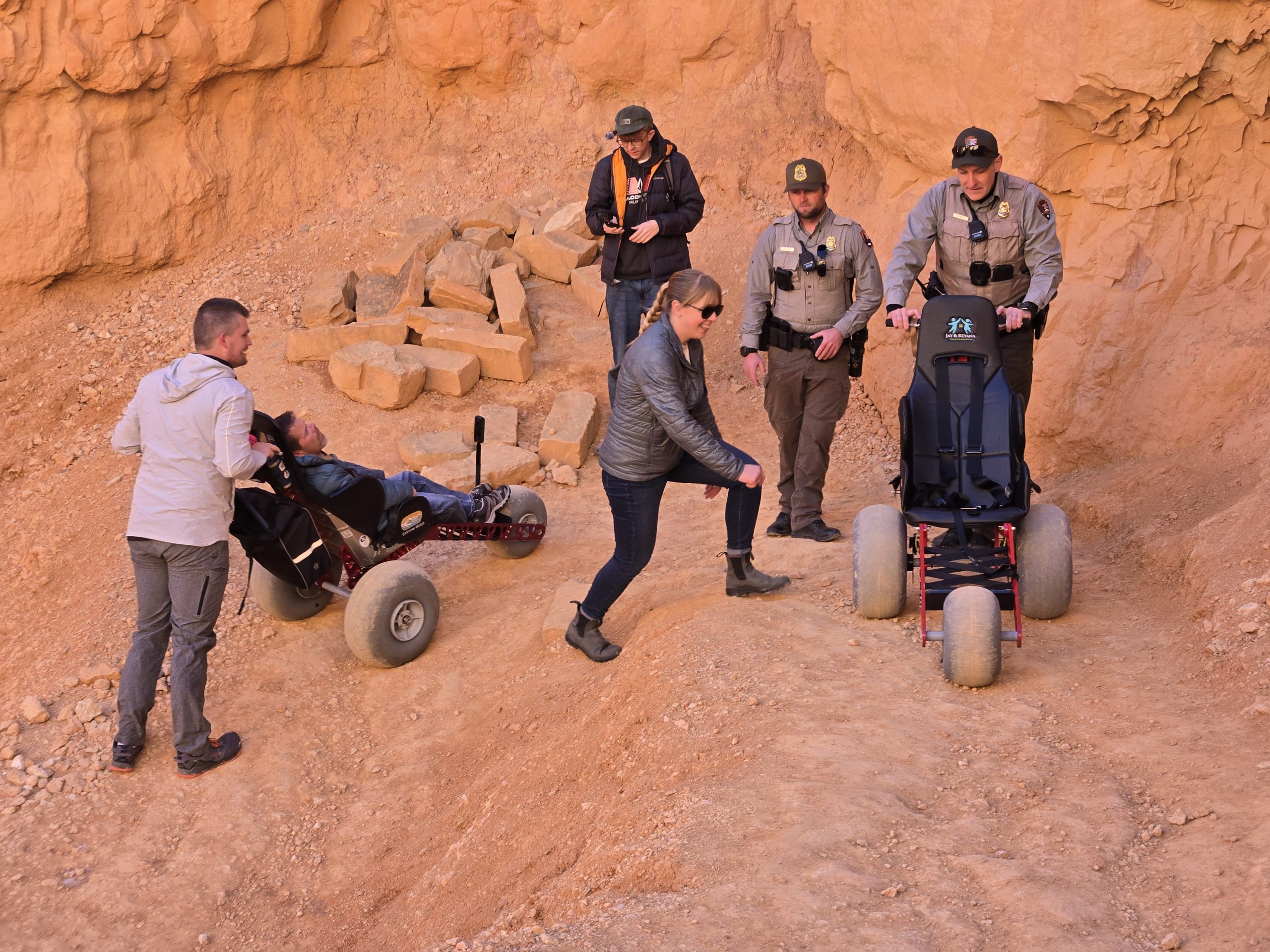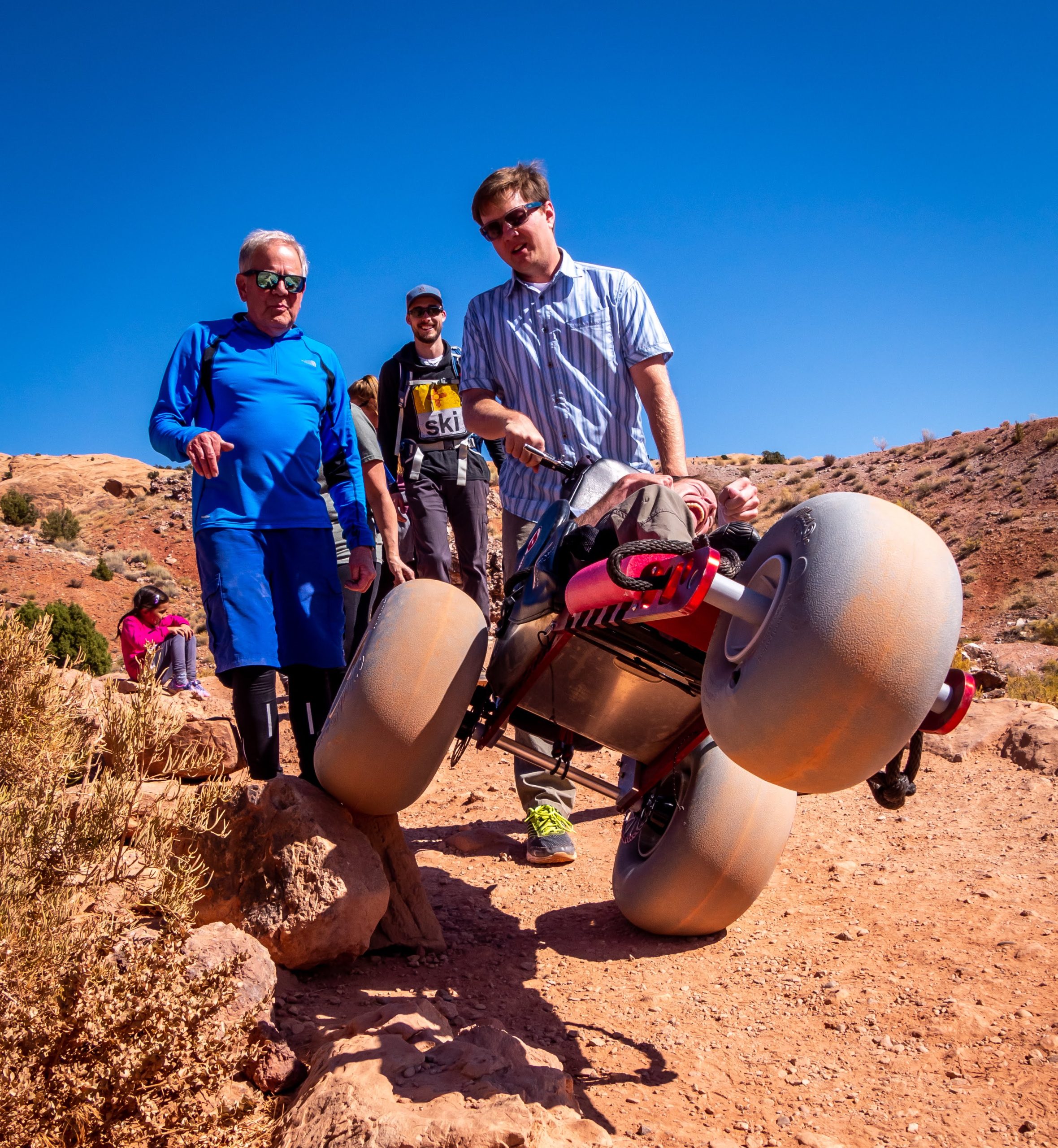Health Benefits of Spending Time Outdoors
In an age where screens dominate our lives, the health benefits of spending time outdoors cannot be overstated. Numerous studies have highlighted the physical, mental, and emotional benefits of connecting with nature. Wheelchair users face an even bigger obstacle when trying to enjoy the outdoors because many of the places they may want to visit don’t have sidewalks, they have trails.
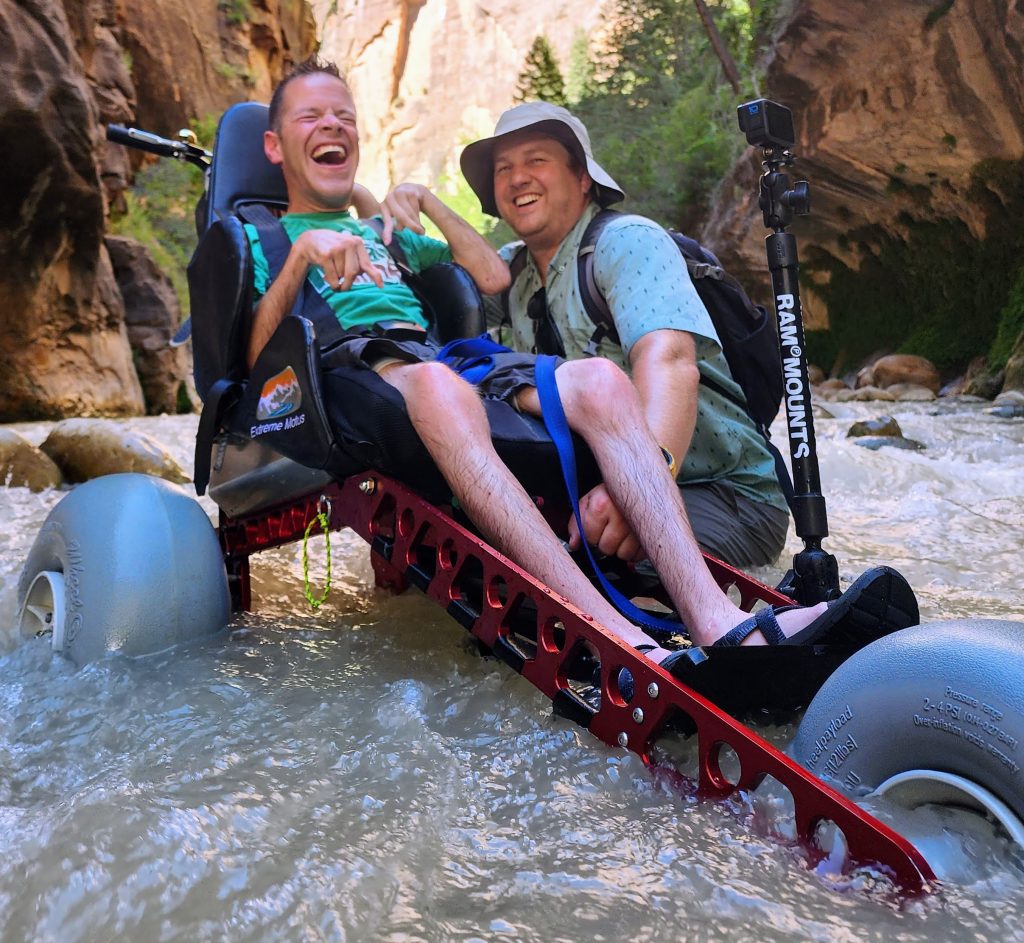
Before we started working together at Extreme Motus my friend Sam was spending a lot of time in the house. His family did their best to keep him busy but his life didn’t have much of a purpose. He volunteered at many places but had never really had a job. Today if you’ve heard of Extreme Motus it’s because of Sam Durst. The company couldn’t exist without such a perfect spokesperson. He has told me many times, “That he was in a very dark place before Extreme Motus came along.
When I think about how much Sam enjoys spending time outdoors, I’m reminded of a passage from Sterling Hayden’s book Wanderer about sailing.
“To be truly challenging, a voyage, like a life, must rest on a firm foundation of financial unrest. I’ve always wanted to sail to the South Seas, but I can’t afford it.’ What these men can’t afford is not to go. They are enmeshed in the cancerous discipline of ‘security.’ And in the worship of security we fling our lives beneath the wheels of routine—and before we know it our lives are gone.
What does a man need—really need? A few pounds of food each day, heat and shelter, six feet to lie down in—and some form of working activity that will yield a sense of accomplishment. That’s all—in the material sense. And we know it. But we are brainwashed by our economic system until we end up in a tomb beneath a pyramid of time payments, mortgages, preposterous gadgetry, playthings that divert our attention from the sheer idiocy of the charade.
The years thunder by, the dreams of youth grow dim where they lie caked in dust on the shelves of patience. Before we know it, the tomb is sealed. Where, then, lies the answer? In choice. Which shall it be: bankruptcy of purse or bankruptcy of life?”
–Wanderer – Sterling Hayden
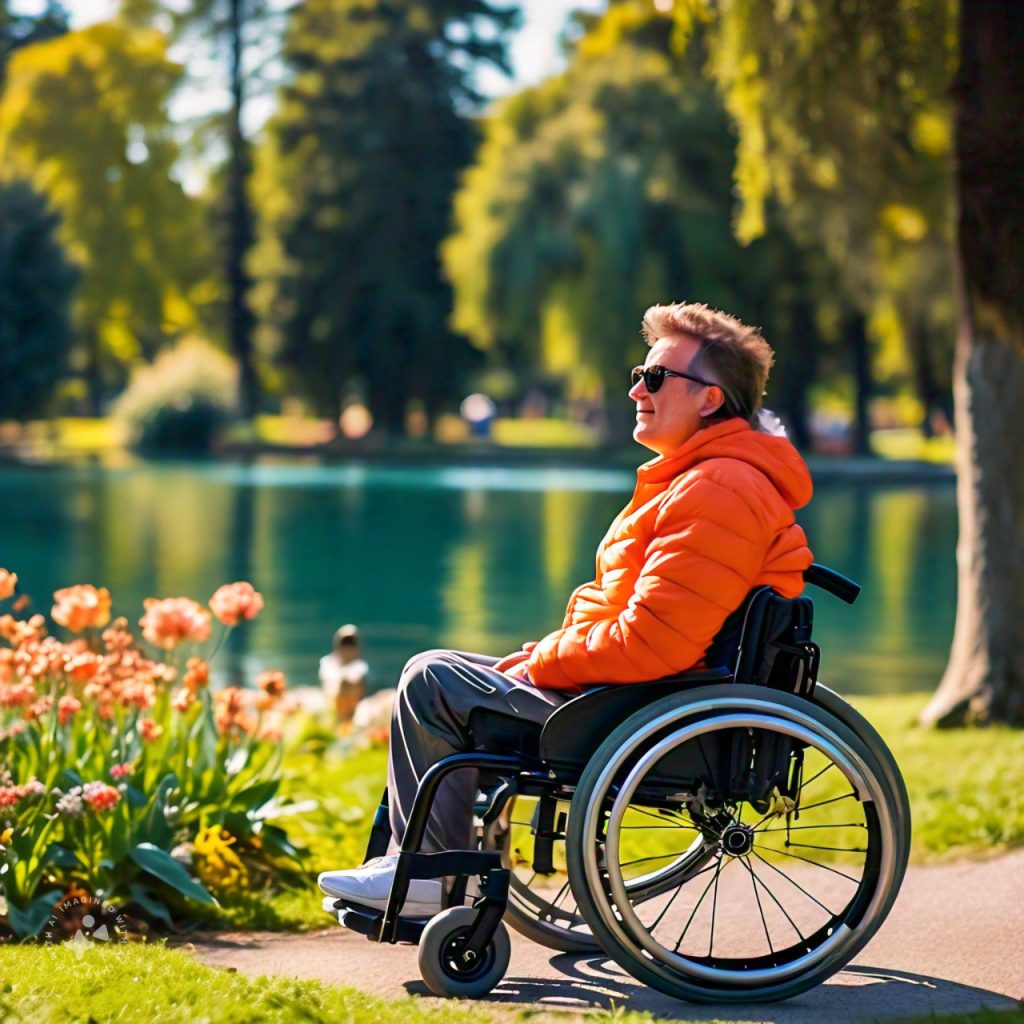
Physical Health Benefits
- Improved Cardiovascular Health Engaging in outdoor activities such as hiking, biking, or even a leisurely walk can significantly improve cardiovascular health. These activities elevate heart rates, strengthen heart muscles, and reduce the risk of heart diseases.
- Enhanced Immune Function Exposure to fresh air and sunlight can boost the immune system. Sunlight provides a natural source of Vitamin D, which is crucial for bone health and immune function. Additionally, spending time in natural environments has been shown to increase the production of white blood cells, which help fight off infections.
- Better Respiratory Health Breathing in fresh outdoor air, especially in forested areas, can improve lung function and respiratory health. The presence of trees and plants increases oxygen levels and decreases pollutants, offering a breath of fresh air literally.
Mental Health Benefits
- Reduced Stress Levels Nature has a calming effect on the mind. Spending time outdoors reduces cortisol levels, the body’s main stress hormone, leading to a more relaxed state of mind. Activities like walking in the park or sitting by a lake can soothe anxiety and promote relaxation.
- Improved Mood Exposure to natural light and fresh air can elevate mood and increase feelings of happiness. Outdoor activities trigger the release of endorphins, often referred to as “happy hormones,” which contribute to overall emotional well-being.
- Enhanced Cognitive Function Being in nature improves concentration and cognitive function. Studies have shown that people who spend time outdoors have better attention spans and improved memory. Nature’s peaceful environment helps in reducing mental fatigue and rejuvenating the mind.
Emotional Health Benefits
- Increased Sense of Well-being Spending time outdoors fosters a sense of connection with the environment, which can enhance overall well-being. Engaging in activities like gardening, hiking, or simply being in a natural setting can provide a sense of fulfillment and joy.
- Boosted Creativity Nature stimulates the senses and inspires creativity. Many artists, writers, and thinkers draw inspiration from the natural world. A walk in the park or a hike in the mountains can ignite creative thoughts and ideas.
- Strengthened Social Connections Outdoor activities often involve social interaction, whether it’s a group hike, a family picnic, or a community gardening project. These activities help build and strengthen relationships, providing emotional support and a sense of belonging.
Wheelchair users often face several challenges when trying to enjoy the outdoors. Here are some common obstacles:
Physical Barriers
Uneven Terrain: Trails, paths, and natural environments can be uneven, rocky, or muddy, making it difficult for wheelchairs to navigate.
Steep Inclines: Hills and slopes can be challenging to climb, especially without proper support or assistance.
Lack of Ramps and Handrails: Many outdoor areas lack accessible ramps, handrails, or other features that would make navigation easier.
Narrow Pathways: Trails and pathways that are too narrow can be inaccessible for wheelchairs.
Environmental Barriers
Weather Conditions: Rain, snow, and extreme temperatures can make outdoor activities uncomfortable or even dangerous for wheelchair users.
Lack of Accessible Facilities: Restrooms, picnic areas, and other facilities may not be designed to accommodate wheelchairs.
Social and Cultural Barriers
Ableism: Negative attitudes and misconceptions about disability can create unwelcoming environments.
Lack of Awareness: Many people are unaware of the specific needs and challenges faced by wheelchair users, leading to a lack of inclusive practices.
Financial Barriers
Cost of Equipment: High-quality, all-terrain wheelchairs and adaptive equipment can be expensive, making it difficult for some individuals to afford them.
Transportation: Getting to and from outdoor locations can be challenging and costly, especially if specialized transportation is required.
Despite these challenges, many organizations and communities are working to improve accessibility and create more inclusive outdoor spaces.
Conclusion
The benefits of spending time outdoors are manifold, affecting physical, mental, and emotional health. Incorporating outdoor activities into daily routines can lead to a healthier, happier, and more balanced life. So, step outside, breathe in the fresh air, and let nature work its magic on your well-being.
If you would like to learn more about how the Extreme Motus All-Terrain Wheelchair can help you or a family member with mobility challenges enjoy the health benefits of the great outdoors please reach out today.
Ryan Grassley
ryan@extrememotus.com
801-683-9191
Every year, more families discover the freedom these chairs create—this Black Friday, demand is already building fast. By joining the early-access list, you secure your chance to order before the sale goes public on November 28, 2025.
Since 2019, Sam and Ryan have been demonstrating that nature is wheelchair accessible with the Extreme Motus All Terrain Wheelchair. From National Parks to Skateparks, their adventures prove that a manual off-road wheelchair can offer laughter and joy while navigating diverse terrains.
Join us as we continue to share these inspiring journeys.
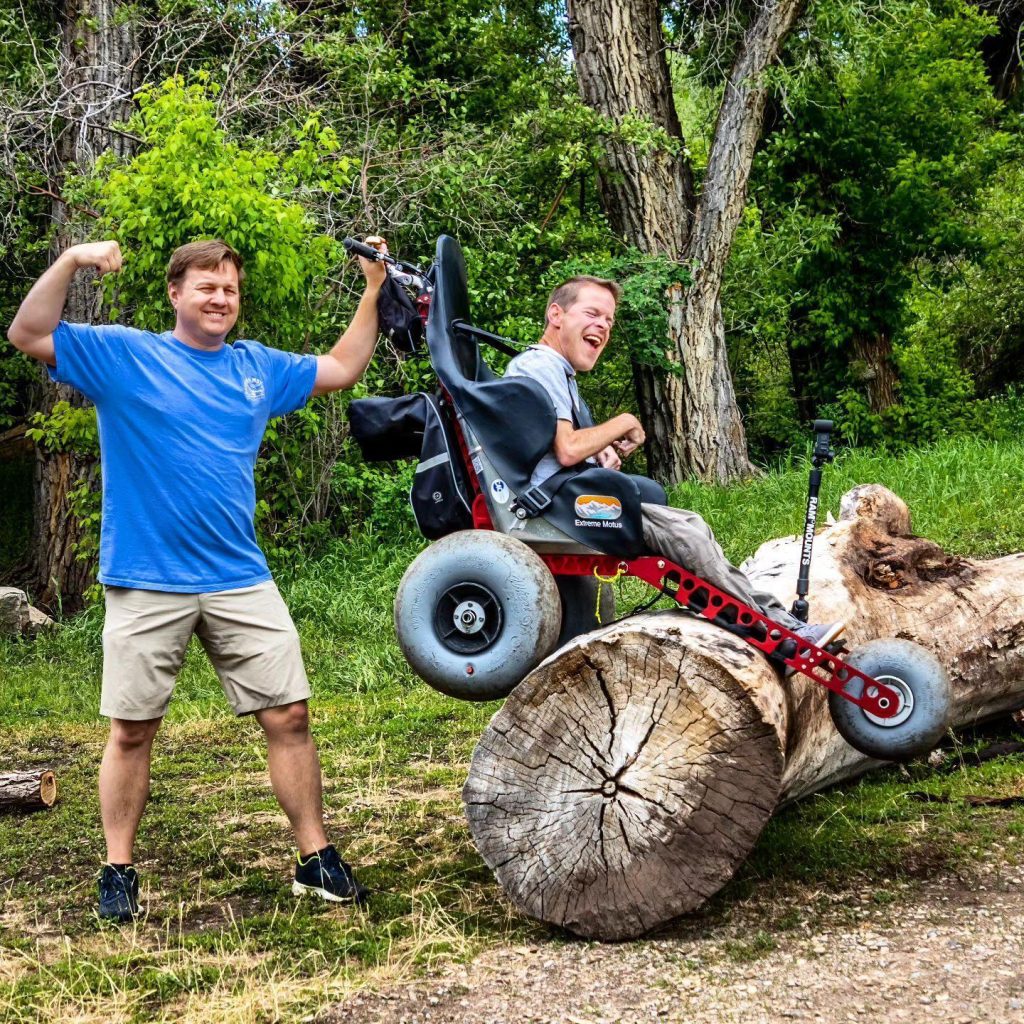
Light, comfortable, and compact, the Extreme Motus glides over sand, rocks, grass, gravel, and even floats in water.
It’s more than a outdoor wheelchair; it’s your ticket to freedom. Embrace the outdoors with confidence, knowing our off-road wheelchair is engineered for durability and ease of use.
Be the first to hear about new gear, upcoming adventures, and exclusive offers. As a welcome gift, enjoy $10 off your first Motus T-Shirt when you subscribe.
By subscribing you agree to receive marketing communications from Extreme Motus, including product updates, promotions, and special offers. I understand I can unsubscribe at any time.

